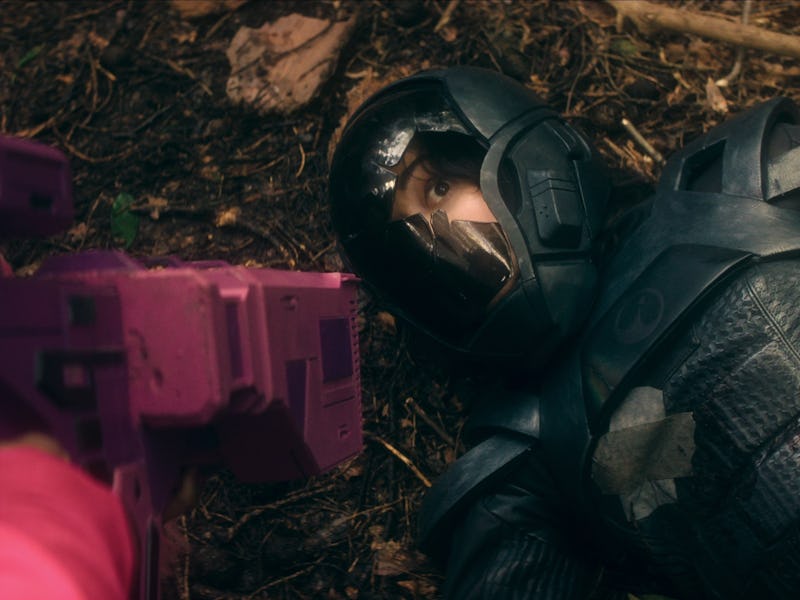What if everyone’s existence was defined by a massive, shared, virtual reality MMORPG? That’s the basic premise of Ernest Cline’s 2011 novel, Ready Player One, a book that, for better or worse, redefined the conversation around geek nostalgia and imagined virtual futures. But here’s the thing: with its newest season, the Netflix sci-fi Energizer Bunny, Black Mirror, just beat Ready Player One at its own game. Here’s why.
Spoilers ahead.
While the references to Star Trek and other space opera-ish sci-fi creates the aesthetic basis for “USS Callister: Into Infinity,” the status quo of the action isn’t really a Star Trek set-up at all. Instead, as introduced in the 2017 episode, “USS Callister,” the whole reason that there are digital clones of real people at all is because Robert Daly (Jesse Plemons) and James Walton (Jimmi Simpson) have created and monetized an incredibly popular MMORPG called Infinity, which is a huge focus of many people’s lives. Though we saw a sliver of this in the original “USS Callister,” the new sequel really opens up the world of Infinity, and in doing so, presents a slightly more relatable version of the Oasis from Ready Player One.
Perhaps the most Ready Player One moment of “Into Infinity” comes when the crew is confronted with a user in a massive spaceship that is just called “Metallica Fan.” When nobody can correctly name a Metallica song, the space missiles start flying. This feels not only somewhat realistic but also the kind of thing that could have happened in Ready Player One. Sure, Wade named his ship the Vonnegut in the book, but it's not like all the other users were making literary references.
The Callister crew in Black Mirror Season 7.
The actual stakes and plot of “Into Infinity” also feel like a kind of response to Ready Player One, even if unintentionally. Though the ending of the first “USS Callister” was hopeful, making us think the hapless digital clones were now free to roam an open-sourced universe, “Into Infinity” reveals the realities of being off-the-grid players in a brutal video game. In an earlier episode of Black Mirror Season 7, “Plaything,” the character of Colin Ritman (Will Poulter) points out that too many video games rely on murder and conflict as their basic rules. In “Into Infinity,” this theme is echoed with Nanette (Cristin Milioti) and her crew.
In order to survive according to the mechanics of the game, they need money. But the only way to earn in-game money is to steal it, and that’s difficult because the default mode of the game isn’t exploration or adventure, but instead, combat. The biological human players can respawn as soon as they're taken out, but the Callister crew can’t. They might be digital clones of humans, but they don’t have a biological body to go back to.
Essentially, this is the biggest question that “Into Infinity” is secretly asking: What if a Ready Player One world eventually had sentient non-biological players? Flying around one's own personal spaceship and blowing things up with colorful weapons is all fun and games, but when somebody can’t turn the game off — because they live inside of it — the gameplay itself suddenly feels less fun.
The glee with which the other players try to relentlessly murder the Callister crew is understandable. This game rewards them for doing exactly what they’re doing. But, if they keep going, formerly enslaved humans will lose their lives forever. This is the kind of thing Ready Player One’s virtual world didn’t really touch. In fairness, these themes weren’t really part of the goal of Cline’s novel. But, by reusing the Ready Player One trope of the immersive and omnipresent MMORPG, Black Mirror has made an easy geeky set-up into something far more sinister and revealing.
